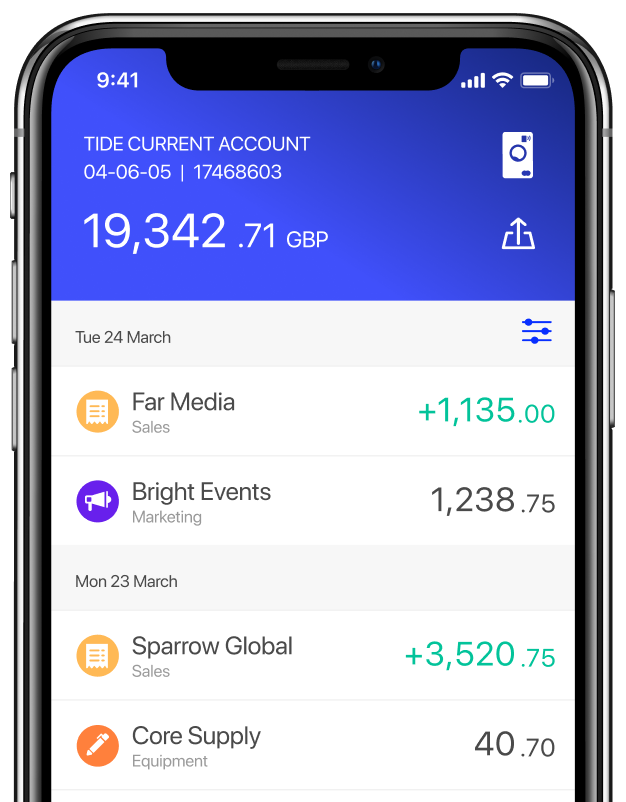
Stay in control with our tips for dealing with phone scams

‘The best number to reach me on is my email.’ Harmless joke or wise words for a business owner? Some days are far busier than others, and it can be easy to make a costly decision when you’re rushing. But what should you do if you’re on the phone with what seems like a legitimate organisation and the caller is pressuring you?
Introduction
Scam calls, otherwise known as ‘spoof’ calls, fall under impersonation scams and can lead business owners to fall victim to APP and other types of fraud. These bogus calls are common and are made from around the world, with fraudsters using cheap and accessible technologies to mask or ‘spoof’ a real phone number or caller ID so you think they’re someone they’re not. Usually, they’re pretending to be a trusted or well-known organisation.
During a spoof call, a fraudster will use tricks that encourage you to give away information about yourself or act without thinking. They may impersonate companies like Tide, but can also pose as utility companies, government departments and various other institutes. In an earlier blog post, we talked about HMRC scams as a widespread example of impersonation fraud. Have a look at how fraudsters do this, below.
Here’s how that call might go
- Your phone’s vibrating. You look down and see a number you recognise as Tide’s lost and stolen line. It’s the same as the one on the back of your Tide card.
- The voice on the line tells you what no-one wants to hear. “Your account’s been compromised”, meaning your funds are in danger. They pressure you to act fast to protect your money, telling you to “move your funds into a safe account immediately.”
- The caller gives you transfer details for the secure account and continues to pressure you to move your money as quickly as possible.
- You transfer your funds to the alleged safe account, and the caller ends the call. Only at this stage do you realise it’s a scam.
Tune in to manipulation 👂
A fraudster’s goal is to create panic and confusion that they can use against you. In a fearful state, you could hand over your money by following their instructions.
When you know what to listen for, your judgement is better. Scam callers may:
- Use emotion
Fraudsters exploit your feelings. A common technique is the “hot” state situation. Here, people genuinely believe they are at risk and are more likely to make an error of judgement due to stress, anger or panic. - Secure trust
A fraudster might gather some of your data before they call you, and use it to make you believe they’re real. Phone numbers and email addresses can be harvested from email sign offs, social media and online forms.
- Apply pressure
Pressure from a fraudster can distress you to the extent that you might forget what information you’ve shared with the organisation you think you’re speaking to. Confusion triggers irrational behaviour, leading you to move funds or reveal even more information about yourself or your business.
Become spoof-proof 🤓
If we’re calling you, our associates won’t hesitate to verify it’s us by sending you a message in our encrypted app chat. If you’re not speaking to Tide, though, take notes on the following:
- Don’t trust the caller ID straight away
A fraudster can disguise their number to match official contact information. Ask the caller to verify that they’re real in another way if you’re unsure or check the official company website or any formal paperwork you might have for alternative contact details such as an email address that you can use to verify the call’s purpose. - Money movement
Our systems are secure, so you’ll never be asked to move your cash or make decisions about your money on the spot.
- Login, balances, passwords and one-time passcodes (OTPs)
They are strictly for the account holder’s eyes only. We’ll never ask for your whole card number or the 3-digit security code on the back of your card either. Sharing this information is particularly dangerous and might affect a dispute if you ever need to raise one.
We’re stepping in
If you notice a call coming through from us, we encourage you to confirm that you’re speaking to one of our real associates. Ask us to send you an in-app message to verify ourselves and give you rock-solid peace of mind.
Remember, if the organisation cannot verify itself, you could be speaking to a fraudster – and it might be safer to just end the call.
Worried about spoof calls? Chat with us in your Tide app
We don’t need to keep your line busy to take steps to protect your business. If you think you’ve answered a spoof call or told someone information that could put your business at risk, we’re waiting to hear from you.
Speak to an associate in your Tide app for advice by tapping:
Support→ Emergency →Report Fraud
You can help fellow business owners by contacting Action Fraud to file a report, too.
Wrapping up
If you no longer feel comfortable during a phone call, or you suspect it might be a spoof call – hang that call right up. 🔚
But okay, if that’s not your style, then really do insist that the caller sends you an email instead. This way, you have more time to consider what the caller wants from you and use all the tips we’re giving you to keep your business safe.




